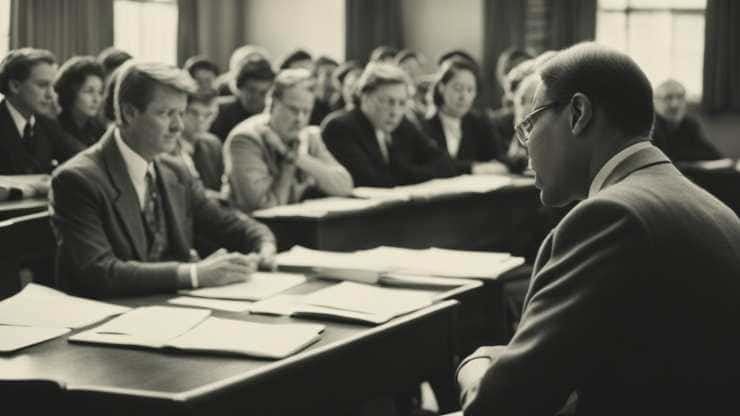Belief perseverance (also called conceptual conservatism) is the tendency for people to hold on to their existing beliefs, even when those beliefs are discredited by new information or evidence. This phenomenon is particularly significant in the face of evidence that should logically challenge the belief, showcasing the strength and tenacity of pre-held notions. For example, a…
Category: Cognitive Science
The Curse of Knowledge Bias – Ignorance is Bliss?
The curse of knowledge is a cognitive bias that occurs when an individual who is privy to specific information finds it difficult to envision what it’s like not to possess this knowledge. This bias can lead to miscommunication, as the informed individual may overestimate others’ understanding. Cognitive scientists recognize it as a barrier to perspective-taking…
What is Observer Bias in Research
Observer bias, a form of detection bias, manifests in observational studies when the individuals conducting the research subtly influence the results based on their own expectations and beliefs. It is a type of cognitive bias that can affect the objectivity of an observation, leading to inaccuracies that may invalidate the research. Observation is crucial for scientific study and activity, and as such,…
What is the Dunning-kruger Effect?
The Dunning-Kruger effect is a cognitive bias in which individuals overestimate their competence in a specific area, often significantly. This concept was introduced by psychologists David Dunning and Justin Kruger, who observed that people with limited knowledge or ability in a domain are not only prone to making errors but also lack the capability to recognize their…
Illusory Correlation: How We Perceive False Connections
Illusory correlation is the process of detecting a relationship between variables (usually individuals, events, or actions) when none exists. A mistaken connection may be created because infrequent or novel occurrences are more prominent and, hence, attract one’s attention. It is different from the correlation fallacy. Key features of illusory correlation include: Implicit Assumptions: Individuals often…
Survivorship Bias and Hidden Success Traps
Survivorship bias is a type of logical error that occurs when a person draws a conclusion from a set of data that includes only surviving observations or participants, disregarding those that did not make it to the end of the process. This bias, which is a form of selection bias, can lead to incorrect conclusions because the results may not accurately…
What is the Serial Position Effect – Order and Primacy
The serial position effect refers to the phenomenon where an individual’s ability to recall items on a list is influenced by the item’s position within that list. Generally, items at the beginning (primacy effect) and end (recency effect) of a list are remembered more frequently than those in the middle. Primacy Effect: Items early in the list…
What is Authority Bias – Expertise Influence
Authority bias is a cognitive bias that influences individuals to attribute greater accuracy to the opinion of an authority figure, regardless of the content. It is rooted in a deep-seated psychological response that equates authority with correctness. In many cases, people trust the judgments of an expert or leader, even when they have knowledge or…
Fear of Loss: the Loss Aversion Bias
Loss aversion refers to the concept that people tend to prefer avoiding losses rather than acquiring gains. It is a phenomenon in which a loss has a more significant emotional impact on an individual than an equivalent amount of gain. The anguish of loss is thought to be psychologically twice as powerful as the pleasure of…








